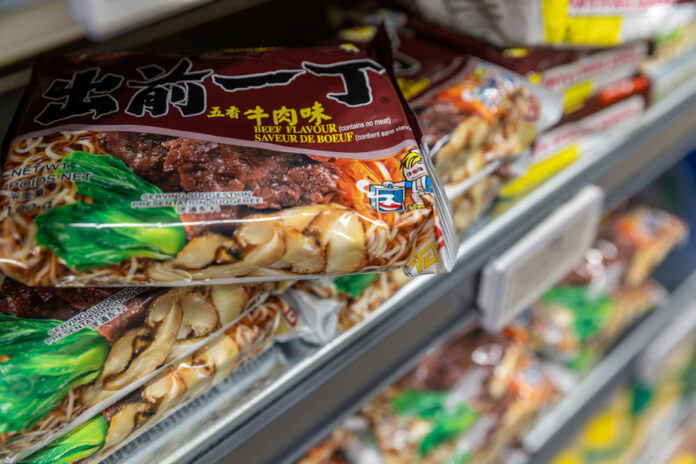Obviously we have changed our habits. The first item we cut was wine, telling ourselves that it was time for our health and also for that of our wallet and that it is far from essential.
We used to regularly make meals for our children who work and live in Montreal. Papygetthi as our grandchildren affectionately call it. Our fridge, which was always overflowing with fresh vegetables and lacking space, is now gaining more empty space. We buy the minimum and we make sure it lasts as long as possible. We stretch the sauce, as they say.
The grocery budget is the same, but we manage it differently. Here, you have to drive to get to the discounts. The first major center where all the chains are located is 20 km away. I make my list on an app by comparing prices and I go to all the targeted stores in order according to the location of the business. I go to stores, like Walmart, that I didn’t frequent because it was against my principles. I also go to Giant Tiger for a stalk of celery! We become more tolerant at the table.
I regretfully no longer buy the good maple mousse cake from the bakery for $30. I make my own cakes and cookies. I shy away from anything that is overpriced. I changed the brand of milk, I slowed down the washing. No more $60 pots of cream, no more $150 hairdresser visits, I will have gray hair!
We live in a consumption bubble and this period of more or less lean times forces us to take a look at our lifestyle habits. Let’s take the opportunity to learn, because we are still among the best-off people on this planet.
I started consulting circulars, something I didn’t do a year ago. I abandoned my Metro, which I loved frequenting, for the more economical version, the Super C. I buy one kind of meat per week, the one that is on discount, and I stock up a little. The freezer is very useful.
What I deplore on the part of grocers is the promotion of pasta, Asian noodles and ready-made jarred sauces. It is not by encouraging these eating habits that the health of low-income families will be preserved. All these discounts then become very attractive. I observed the same thing 30 years ago. Regardless of the prices, Quebecers do not eat well.
We were faithful to our banner where you can find everything and excellent service, but inflation and the obvious price gap on certain basic products push us to visit less high-end merchants, but who allow you to save.
I recently changed grocery stores: I went from IGA to Maxi. It took me a long time to make this change, wondering if it was really worth it, since I was satisfied with the quality and variety of products at IGA, but aware of the really high prices. I want to concentrate my purchases in one place and I won’t go as far as going to three grocery stores to get more products on discount. I’m not a person who chases discounts at all costs. For me to make this change, I really had to be exasperated with the situation.
We used to eat out two or three times a month, but that’s over now, the bill spoils all the fun. We cook, especially products purchased on discount. Beef is almost never on our plates anymore.
Previously, I made it a point to support my local grocery store. Today we prefer to wait until we have more items to buy and we go to a Super C. It’s a shame, but it’s a good way to save money.
It is really difficult to change your eating habits when you have celiac disease. All gluten free products are extremely expensive and there is no real discount because the supply and demand is ridiculous. We pay $9 for a loaf of less than 500 grams and $4 for 340 grams of gluten-free pasta, how do you want to save?
We have not changed our grocery shopping practices. For several years, we have abandoned chains such as IGA, Metro and Provigo, in favor of discount grocery stores like Maxi and Super C, which in our opinion are much less expensive. We systematically monitor discounts in flyers. We rarely buy at full price, but mostly buy products on sale or close to the expiration date (-30%).
I am against discounts for purchasing larger quantities of the same product. Many people live alone and have to pay more for just one product. Additionally, it creates food waste and more trash in the trash.















